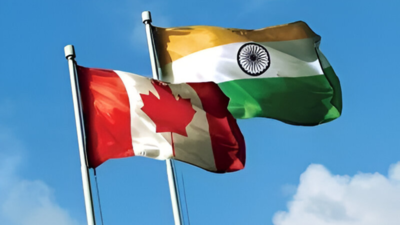A Canadian investigative journalist raised serious concerns about the presence and activities of Khalistani extremists in Canada, highlighting growing threats against the Indian establishment from Canadian soil.This comes just days before the G7 Summit, which is set to be hosted by the Great White North.Mocha Bezirgan, speaking to ANI news agency, said that he was attacked by Khalistan supporters during a rally in Vancouver, hours after warning of rising extremism targeting Indian leaders. “It just happened two hours ago and I’m still shaking,” Bezirgan told ANI over the phone. “They acted like thugs — crowding in on me, grabbing my phone, trying to stop me recording.”Bezirgan, known for covering Khalistan-linked activities across North America, was reporting from a pro-Khalistan demonstration when he said he was physically confronted. In a post on X, he said: “I’ve been surrounded by a group of Khalistanis who grabbed my phone out of my hand and threatened me. Naturally I’m a bit shaken, but not deterred.”Calling the incident “thuggery,” Bezirgan said the attack was a direct result of his independent editorial work. He added that this was not an isolated case. “Today’s thuggery I was subjected to was not the first time,” he wrote, referring to an earlier incident from March 2024 where he reported Khalistan supporters “armed with daggers, swords, and spears” gathering in Edmonton to protest against India’s High Commissioner.Bezirgan’s comments come amid heightened tensions between India and Canada, particularly over Ottawa’s perceived inaction against extremist groups operating from Canadian soil. He also claimed that the Khalistani movement is largely orchestrated by Sikhs for Justice (SFJ) and receives support from political organisations like the World Sikh Organization, which he described as providing political cover in Canada.“This is a movement headed by Sikhs for Justice. They mobilise people to come from local Gurudwaras to create a bit of a crowd,” he said. “But there are bigger political organizations like the World Sikh Organization, based in Canada, which has a troubled history. Their executives include current and former MPs and ministers, who have spread influence across Canadian institutions.”He expressed concern over the reluctance of Canadian politicians to condemn such extremist groups. “Conservative leader Pierre Poilievre, the NDP, and some Liberal MPs recently attended a Nagar Kirtan in Surrey, BC, which had significant Khalistani influence. They shared the stage with Santokh Singh Kelha, a convicted Sikh Canadian who conspired to bomb an airplane,” Bezirgan said.The journalist condemned what he called the glorification of violence by Khalistan sympathisers. “They are celebrating the assassins of Indira Gandhi and openly saying they will ambush and kill India’s Prime Minister, Modi’s politics at the G7,” he told ANI. “They say, ‘We are the descendants of the killers of Indira Gandhi,’ and glorify these acts of violence.”He also raised concerns over lack of media attention and accountability within Canada. “It is disturbing that Canadian politicians continue to associate with such extremists, despite their violent history and inflammatory rhetoric,” he said. “As a citizen, I expect my representatives to distance themselves from extremists and those with violent pasts.”For the upcoming G7 Summit, Prime Minister Narendra Modi recently received an invitation from Canada.Canadian Prime Minister Mark Carney defended the move, citing India’s status as the world’s “fifth-largest economy” and a key player in global supply chains.Though PM Modi’s travel plans are yet to be finalised, he is expected to arrive in Alberta in time for the G7 outreach session on June 17.Meanwhile, India’s concerns over Khalistani extremism operating from Canadian soil have long strained bilateral ties. With Mark Carney’s rise to the top office after Trudeau, there were expectations of a reset in relations, but tensions seem to persist.

